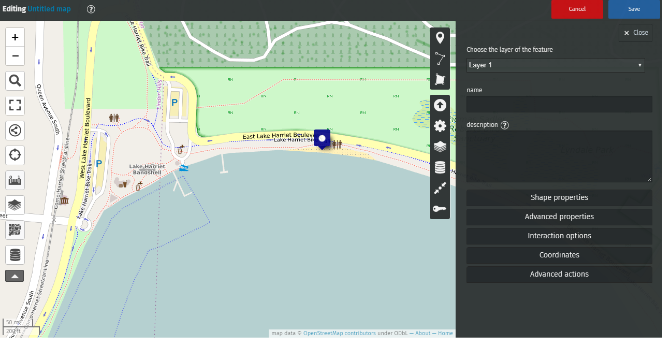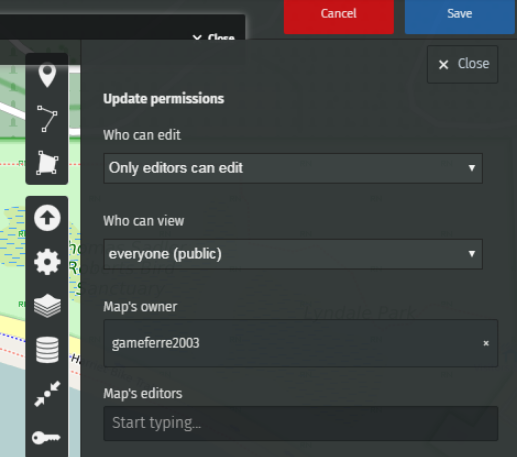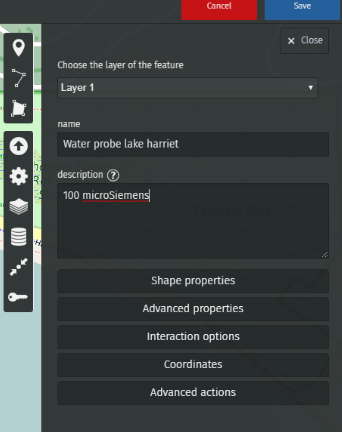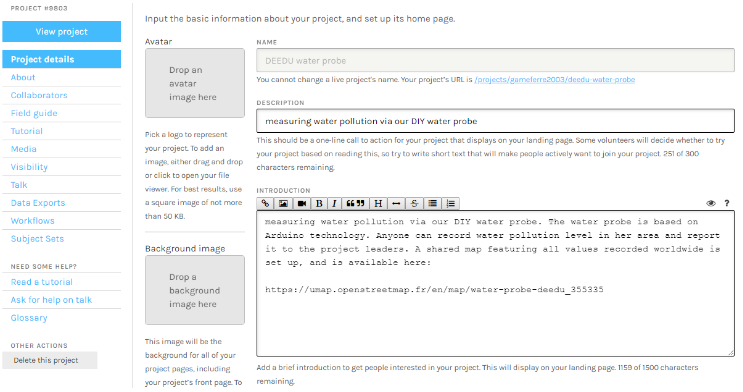DIY Water Probe and Citizen Science
by Digijeunes in Circuits > Arduino
299 Views, 2 Favorites, 0 Comments
DIY Water Probe and Citizen Science

In this tutorial you will learn how to plot the data recorded by a diy water probe, online. You will also learn how to launch a citizen science project on zooniverse.com to communicate about your findings as well as to engage other people in your research.
For a full tutorial on building your own diy water probe based on Arduino Uno, click here.
Plotting Data on a Shared Online Map




You will be sharing the data recorded by your water probe on UMap, which allows users to create their own maps embedding the data of their choice.
First, head to https://umap.openstreetmap.fr/fr/
You ll need to create an account to be able to edit your own maps.
Once you've successfully logged in, hit the “Create a map” button
You can now draw markers and enter the description you wish to publish.
For example, let’s enter the value recorded by our water probe at Lake Harriet, in Minneapolis.
We’ve recorded 100 microsiemens, which by the way means that it is safe to bathe in Lake Harriet!
To share this map with anyone, you just need to provide them with the appropriate link.
Go to Update permissions and editors
You can choose who can view and who can edit this map.
To enable editors to edit the map, copy the link of your map (the web address of your map) and share it with whoever you want.
Launching a Citizen Science Project


Citizen science is the involvement of the public in scientific research – whether community-driven research or global investigations.
Citizen scientists can help trained scientists gather data from all over the world — even from space. They can provide new ideas and new ways of thinking. Kids often make great citizen scientists because they tend to be curious and good at following precise directions. Sometimes they’re even better at these things than adults. You will be creating a project on zooniverse.com, anyone will be able to view and contribute to the project. First, head to zooniverse.org and create an account. Once you’ve successfully logged in, create a new project by clicking on build a project
From the dashboard, you can edit your project and enter as much information as you wish. Don’t forget to embed a link to the shared map in the description of the project.